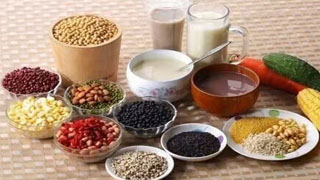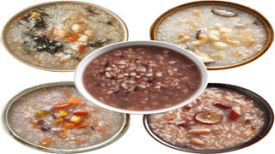
Breastfeeding women need sufficient nutrition to meet their recovery and breastfeeding needs. Here are some ways to supplement nutrition:
1、 Protein
importance:
Protein is an important component of body cells. For lactating women, sufficient protein intake helps maintain normal metabolism, promote wound healing, and enhance immunity. Meanwhile, protein is also an important component of breast milk, providing the necessary nutrients for the growth and development of babies.
For example, high-quality protein can provide energy for lactating women, allowing them to maintain good physical condition while taking care of their babies. For babies, the protein in breast milk is an important material basis for building body tissues and synthesizing antibodies.
Food source:
Lean meat: such as beef, pork, chicken, etc., rich in high-quality protein and minerals such as iron. You can consume an appropriate amount of lean meat every day, such as 100-150 grams. For example, beef has a high protein content and is rich in trace elements such as iron and zinc, which can help prevent anemia during lactation.
Fish, especially sea fish such as salmon and cod, are rich in high-quality protein and unsaturated fatty acids. Eat fish 2-3 times a week, with 100-150 grams each time. For example, salmon is rich in unsaturated fatty acids such as DHA and EPA, which are beneficial for the development of babies' brains and eyes.
Eggs: Eggs, duck eggs, and other high-quality sources of protein are also rich in various vitamins and minerals. Eat 1-2 eggs per day. For example, eggs have a high protein digestion and absorption rate, and are rich in lecithin, which has a positive effect on the development of the nervous system.
Beans and bean products: such as soybeans, black beans, tofu, soybean milk, etc., rich in vegetable protein and dietary fiber. You can consume a certain amount of beans or soy products every day, such as 50-100 grams of soybeans or corresponding amounts of soy products. For example, soybean milk, rich in protein and calcium, is a good drink for lactating women.
2、 Calcium
importance:
Breastfeeding women need a large amount of calcium to maintain their bone health and meet their baby's calcium needs. If calcium intake is insufficient, it can lead to maternal osteoporosis and also affect the baby's bone development.
For example, lactating women need to consume approximately 1000-1200 milligrams of calcium per day. Babies obtain calcium through breast milk to promote the growth and development of bones and teeth.
Food source:
Dairy products: Milk, yogurt, cheese, etc. are high-quality sources of calcium. You can drink about 500 milliliters of milk or corresponding amounts of dairy products every day. For example, milk is rich in calcium and easy to absorb, while also containing nutrients such as protein and vitamin D, which help improve the absorption rate of calcium.
Soybean products: such as tofu, soybean milk, bean skin, etc., contain a certain amount of calcium. You can frequently consume soy products as a source of calcium supplementation. For example, tofu has a high calcium content and is rich in high-quality protein, making it a good food choice for lactating women.
Seafood: Shrimp, shellfish, and other seafood are rich in calcium. Eat seafood 2-3 times a week, with 50-100 grams per serving. For example, shrimp skin has a very high calcium content, which can be added in moderation during cooking to increase the calcium content of the food.
Green leafy vegetables, such as spinach, broccoli, mustard greens, etc., although having a relatively low absorption rate of calcium, are also an important source of calcium. An appropriate amount of green leafy vegetables should be consumed daily, such as 200-300 grams. For example, broccoli is rich in calcium, vitamin C, and dietary fiber, which are beneficial for the health of lactating women.
3、 Iron
importance:
Breastfeeding women may lose a certain amount of blood during childbirth, so they need to supplement enough iron to prevent anemia. Meanwhile, iron is also one of the important components in breast milk, which is crucial for the growth and development of babies.
For example, lactating women need to consume about 25 milligrams of iron per day. If iron intake is insufficient, anemia symptoms such as fatigue, dizziness, and palpitations may occur, affecting one's own health and breastfeeding.
Food source:
Red meat: Beef, pork, lamb and other red meat contain abundant heme iron, which is easily absorbed by the human body. An appropriate amount of red meat, such as 100-150 grams, can be consumed daily. For example, beef has a high iron content and is rich in minerals such as protein and zinc, which help improve the body's immunity.
Animal liver: Pig liver, chicken liver and other animal liver are good sources of iron, as well as rich in nutrients such as vitamin A and B vitamins. Eat animal liver 2-3 times a month, with 50-100 grams each time. For example, pig liver is rich in iron and has a high content of vitamin A, which has a positive effect on the visual development of babies. But it is important to consume in moderation to avoid excessive intake of vitamin A.
Beans: such as soybeans, black beans, red beans, etc., contain a certain amount of non heme iron and can be consumed together with foods rich in vitamin C to increase iron absorption. You can consume a certain amount of beans every day, such as 50-100 grams. For example, red beans can be boiled into red bean soup or added to rice for consumption, increasing the nutritional value of the food.
Green leafy vegetables: Spinach, celery, amaranth and other green leafy vegetables contain a certain amount of iron. An appropriate amount of green leafy vegetables should be consumed daily, such as 200-300 grams. For example, spinach has a high iron content and is also rich in vitamin C and dietary fiber, which helps promote iron absorption and prevent constipation.
4、 Vitamin
importance:
Vitamins are very important for the health of breastfeeding women and babies. Vitamin C, vitamin D, vitamin E, etc. have antioxidant effects, which can enhance immunity and protect cells from free radical damage. Vitamin B is involved in energy metabolism and nervous system function, and has a positive impact on the physical recovery of lactating women and the growth and development of their babies.
For example, vitamin D is crucial for the absorption and utilization of calcium, and a lack of vitamin D may lead to problems such as rickets in both the mother and baby. Vitamin C can promote iron absorption, enhance immunity, and prevent infections.
Food source:
Fruits: Rich in various vitamins such as vitamin C and vitamin E. Fruits such as oranges, lemons, strawberries, kiwis, etc. can be consumed 200-300 grams per day. For example, oranges are rich in vitamin C and dietary fiber, which can help improve immunity and prevent constipation.
Vegetables: Various vegetables contain different types of vitamins. Carrots, pumpkins, broccoli, and other foods are rich in vitamins A and C. A variety of vegetables should be consumed daily, with a total amount of 300-500 grams. For example, carrots are rich in vitamin A, which plays an important role in the visual development of babies.
Nuts: such as almonds, walnuts, cashews, etc., are rich in vitamin E, B vitamins, etc. You can eat a small handful of nuts every day, about 10-15 grams. For example, walnuts are rich in unsaturated fatty acids and vitamin E, which are beneficial for brain development and cardiovascular health.
Whole grains, such as whole wheat bread, brown rice, oats, etc., are rich in B vitamins and dietary fiber. The proportion of whole grains intake can be appropriately increased, accounting for about one-third of the staple food. For example, whole wheat bread is rich in dietary fiber and B vitamins, which help control blood sugar and promote intestinal peristalsis.
5、 Water content
importance:
Breastfeeding women need to consume sufficient water to meet their own and their baby's needs. Water is crucial for the secretion of breast milk and also helps maintain normal metabolism and excretion functions in the body.
For example, lactating women should consume about 2000-3000 milliliters of water per day, which can be supplemented by drinking water, soup, milk, and other methods.
Supplementary methods:
Drinking water: Drink enough plain water, preferably warm water, every day. You can carry a water cup at any time, drink water regularly, and ensure that your body is adequately hydrated. For example, drink a glass of water every once in a while to avoid waiting until you feel thirsty before drinking water.
Drinking soup: You can drink some nutritious soups in moderation, such as chicken soup, fish soup, pig trotter soup, etc. These soups not only replenish water, but also contain rich nutrients such as protein and calcium, which help promote milk secretion. But be careful to avoid overly greasy soup to prevent indigestion.
Drinking milk: Milk is a nutrient rich beverage that not only replenishes water, but also provides protein, calcium, and other nutrients. You can drink about 500 milliliters of milk every day. For example, drinking a glass of milk before breakfast or going to bed at night can not only supplement nutrition but also help with sleep.
6、 Precautions
Balanced diet:
Breastfeeding women should ensure a diverse and balanced diet, avoiding picky or selective eating habits. It is recommended to consume a variety of foods such as grains, meat, fish, eggs, dairy products, beans, vegetables, fruits, etc. every day to meet the body's needs for various nutrients.
For example, a weekly diet plan can be developed, with a reasonable combination of various foods to ensure a balanced nutrition.
Moderate intake:
Although lactating women need to supplement their nutrition, they should also pay attention to moderate intake and avoid overeating. Overeating may lead to excessive weight gain and increase the risk of diabetes, hypertension and other diseases.
For example, one can control their food intake reasonably based on their physical condition and activity level, and avoid overeating.
Pay attention to food safety:
Breastfeeding women should pay attention to food safety and choose fresh, clean, and pollution-free food. Avoid consuming expired, spoiled, or unclean food to prevent food poisoning or intestinal infections.
For example, when purchasing food, pay attention to checking the production date, shelf life, and food labels, and choose legitimate channels to purchase food. When cooking food, it is necessary to thoroughly clean and cook it thoroughly, avoiding raw or undercooked food.
Individualized adjustment:
The physical condition and nutritional needs of each lactating woman may vary, so individualized adjustments should be made based on their actual situation. If you have special dietary needs or health issues, you can consult a doctor or nutritionist for advice.
For example, lactating women with diabetes need to control their carbohydrate intake and choose foods with low sugar and high fiber. For vegetarians, it is important to pay attention to supplementing with nutrients such as protein, iron, and zinc. They can meet their nutritional needs by consuming legumes, nuts, whole grains, and other foods.


